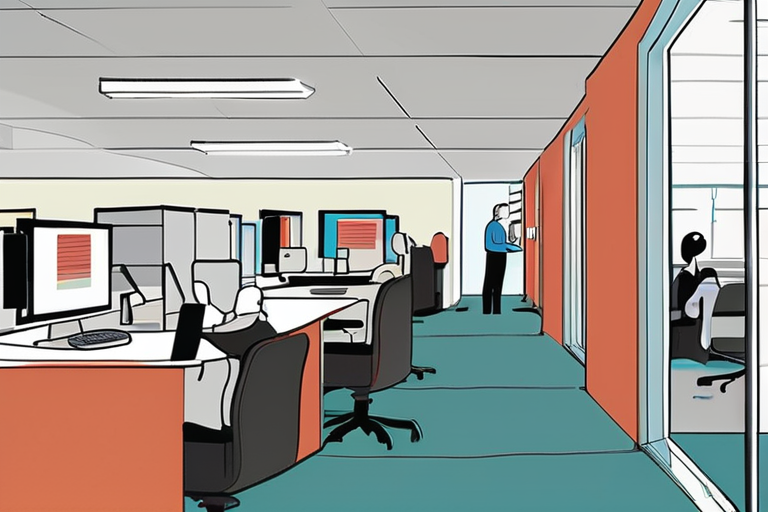The New Corner Office: Remote Work Revolutionizes the Traditional Workspace
In a shift away from traditional office politics, companies are redefining what it means to have the "corner office." Gone are the days of competing for parking spots and coveted office spaces. Instead, the new corner office is at home, where employees can work remotely with greater flexibility.
According to research by Stephan Meier, chair of the Management Division and James P. Gorman Professor of Business at Columbia Business School, remote work has become a flashpoint in companies grappling with return-to-office mandates and hybrid schedules. "The decision about who works where is becoming a contentious issue," Meier said. "Employees are fighting over who gets to work from home and how often."
This new dynamic is not just about personal preference; it's also about fairness, status, and favoritism. Joel Brockner, Phillip Hettleman Professor of Business in the Management Division at Columbia Business School, notes that remote work has exposed deep-seated resentments among employees. "The traditional office politics are being redefined," Brockner said. "Employees are questioning who gets to work from home and why."
The shift towards remote work is not new, but its implications for society are far-reaching. With the rise of digital communication tools and cloud-based software, companies can now operate with greater flexibility and efficiency. According to a study by Meier and Brockner, remote workers experience improved productivity, job satisfaction, and work-life balance.
However, this shift also raises questions about fairness and equity. Who gets to work from home, and who is left behind? How do companies ensure that remote workers are not disadvantaged in terms of career advancement and opportunities?
To address these concerns, companies are implementing new policies and procedures for remote work. Some are adopting flexible schedules, while others are investing in digital communication tools to facilitate collaboration and connection among remote teams.
As the debate around remote work continues, one thing is clear: the traditional office politics are being rewritten. The corner office is no longer a physical space; it's a concept that represents flexibility, autonomy, and opportunity.
Background and Context
The shift towards remote work has been gaining momentum over the past decade, with companies like Amazon and Microsoft leading the charge. According to a survey by Gallup, 43% of employed adults in the United States are working remotely at least some of the time.
However, the COVID-19 pandemic accelerated this trend, forcing companies to adapt quickly to new realities. As governments lifted lockdowns and restrictions, companies were faced with the challenge of bringing employees back to the office while maintaining social distancing measures.
Additional Perspectives
While remote work offers many benefits, it also raises concerns about isolation, burnout, and lack of connection among team members. Companies are experimenting with innovative solutions, such as virtual reality tools and digital watercooler spaces, to address these challenges.
As companies continue to navigate the complexities of remote work, one thing is clear: the traditional office politics are being rewritten. The corner office is no longer a physical space; it's a concept that represents flexibility, autonomy, and opportunity.
Current Status and Next Developments
As companies continue to experiment with remote work policies, one thing is certain: the future of work will be shaped by technology, flexibility, and innovation. With the rise of AI-powered tools and virtual reality platforms, companies are poised to redefine what it means to work remotely.
In the words of Meier, "The new corner office is not just a physical space; it's a state of mind." As companies continue to adapt to this new reality, one thing is clear: the traditional office politics are being rewritten, and the future of work has never looked brighter.
*Reporting by Fortune.*



 Hoppi
Hoppi

 Hoppi
Hoppi

 Hoppi
Hoppi

 Hoppi
Hoppi

 Hoppi
Hoppi
 Hoppi
Hoppi










